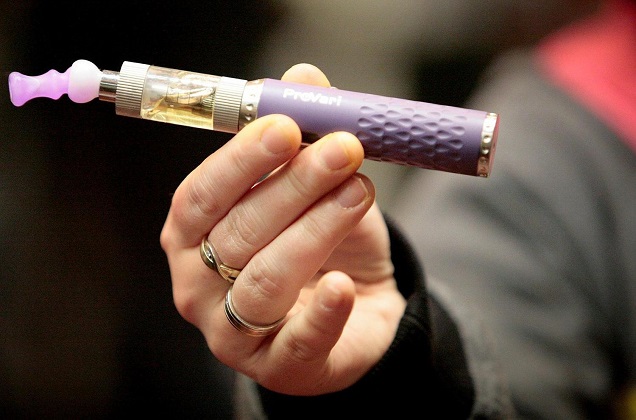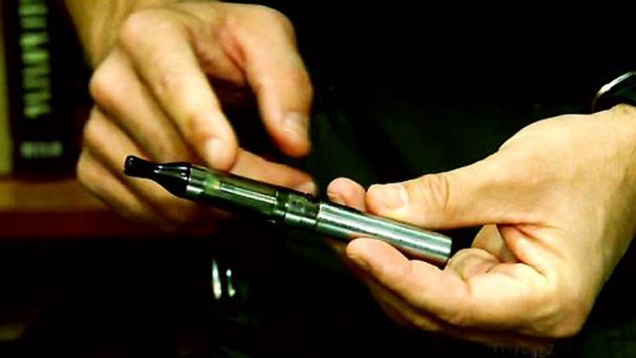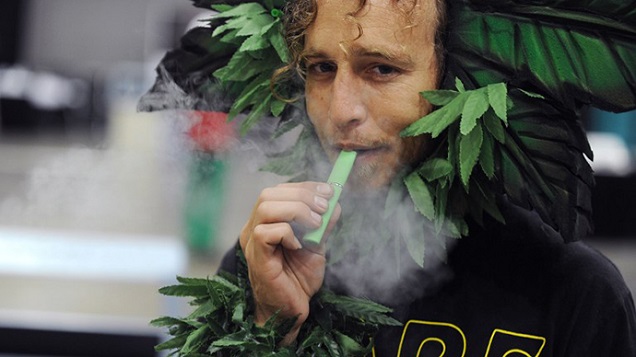
Getting caught with an e-cigarette in some schools can get you suspended, tested for drugs and lead to “possession of drug paraphernalia” being marked on your school record. The decision being made by schools in states such as North Carolina, New Jersey, Washington and Connecticut to class e-cigarettes as “drug paraphernalia” means that you’re better off being caught with cigarettes than e-cigarettes. Regardless of your opinion on teen vaping, it’s not difficult to recognize the move as counter-productive and extreme. So what’s the justification? Oh, of course: some people vape weed, so we’ll treat everybody who vapes as if they’re a stoner. Well, nobody said that logic was a strong suit of theirs.
Getting Caught with Cigarettes vs. E-Cigarettes in Schools
While we don’t want to labor the point (after all, this is why we all vape in the first place), but when you consider the punishment doled out to students caught with cigarettes and those caught with e-cigarettes, keep in mind that scientists and experts generally estimate that e-cigarettes are about 100 times safer than combusted cigarettes (if not more).
Getting caught with cigarettes gets you a detention, a letter home and possibly an educational class on tobacco and its risks.
Getting caught with an e-cigarette gets you a week-long suspension, a drug test and “possession of drug paraphernalia” forever etched onto your school record.
So – forgetting about other valid objections for now – put yourself in the shoes of a teen who smokes and occasionally vapes, living in one of the unfortunate areas where these rules are in force. You’re going to school, and you’re going to need some nicotine if you’re going to get through the day without getting all agitated and withdrawal-y. Do you take your cigarettes or your e-cigarette? Assuming you don’t want to get in trouble, there’s a good chance you’ll stick with the smokes. That way, on the off-chance you get caught, it’s a minor inconvenience instead of a potentially future-destroying event. This policy pushes nicotine-addicted teens to smoke instead of vape, the opposite of what anybody concerned about teens’ health should want, given a choice between the two.
Granted, most schools treat e-cigarettes in the same way as cigarettes, and even where these rules are in force, every infraction is evaluated on a case-by-case basis, but it’s clearly a disproportionate move, to say the least.
According to Sarah D’Annolfo, dean of students at the Taft School in Connecticut, “Our goal is to reduce access and discourage use on campus … It definitely sparks conversation within the school community about e-cigarette use and the possible dangers and the possible benefits.”
E-Cigarette = Drug Paraphernalia?

The fact that there is case-by-case evaluation is a good thing, but equating e-cigarettes and drug paraphernalia is a questionable decision even with that in mind. Yes, some people do vape marijuana, whether in the form of dry herb or oils, but does that represent the majority of vapers? It’s incredibly unlikely to be the case. The decision also raises a lot of questions about what else should be considered drug paraphernalia by the schools: you could, for example, use a tobacco pipe to smoke marijuana, so are all pipes drug paraphernalia? What about cigarette papers and rolling devices? You can snort cocaine through a dollar bill, so is money drug paraphernalia?
If we were having a rational discussion, it’s clear that none of these things are drug paraphernalia. In fact, the U.S. Customs and Border Protection website specifically answers the question about rolling devices: if there’s residue of drugs on it, then yes it’s classed as paraphernalia. It might be debatable in some cases, but the Code of Federal Regulations definition is also provided:
“The term ‘drug paraphernalia’ means any equipment, product, or material of any kind which is primarily intended or designed for use in manufacturing, compounding, converting … or otherwise introducing into the human body a controlled substance.” (our italics)
Clearly, the definition hinges on “primary” use of the product, in which case the vast majority of e-cigarettes obviously do not qualify. But this is the school system we’re talking about, and some school policy documents available online don’t make such a distinction. One addressing rules for student athletes even includes rolling papers as an example of drug paraphernalia.
For any sensible policy, the primary use is all that matters. If you happen to be caught with one of the many vaporizers primarily intended for marijuana (list courtesy of r/vaporents), then treating it as paraphernalia is understandable. Similarly, if you’re caught with an e-cig covered in marijuana residue, you’re obviously using it as paraphernalia. But for a normal e-cig, probably accompanied by a bottle of e-liquid, the primary use is clearly not to vape pot.
But that didn’t stop a teen in New Jersey being asked to submit a drug test after being caught with her older brother’s e-cigarette. Her mother, Kathleen Leone, refused to allow her to take the test, and now her daughter has “suspended for refusal to take a drug test” on her school record, which could have an impact on her chances of getting into college. Was there any reason to think it was being used for drugs? Probably not.
A More Sensible Solution: Use Your God-Damn Brain!

What could Kathleen’s daughter’s teachers have done instead of assuming her e-cig was being used for drugs? I don’t know, perhaps press the button and smell it! Hash oil might not smell as strongly as vaped leaf (which also smells), but you can still smell it. If it doesn’t smell like pot even a little, but it does smell like some e-liquid that the student also has in his or her possession (which you can Google the name of if you still don’t trust it), then you can probably be confident that it’s just a kid trying to reduce the harm associated with nicotine consumption rather than some type of stealth-stoner.
Not everyone in the school system is this stupid, thankfully. Kristen Amundson, executive director of the National Association of State Boards of Education, said her group would recommend treating e-cigs as tobacco products, adding that administrators should use “good judgment and discretion” when evaluating cases. She continues, “That's how we end up not having to hear a case of a kindergartner who brought a little paring knife to school suddenly being recommended for expulsion for bringing a weapon to school.”
We can only hope that these schools take her words to heart.

